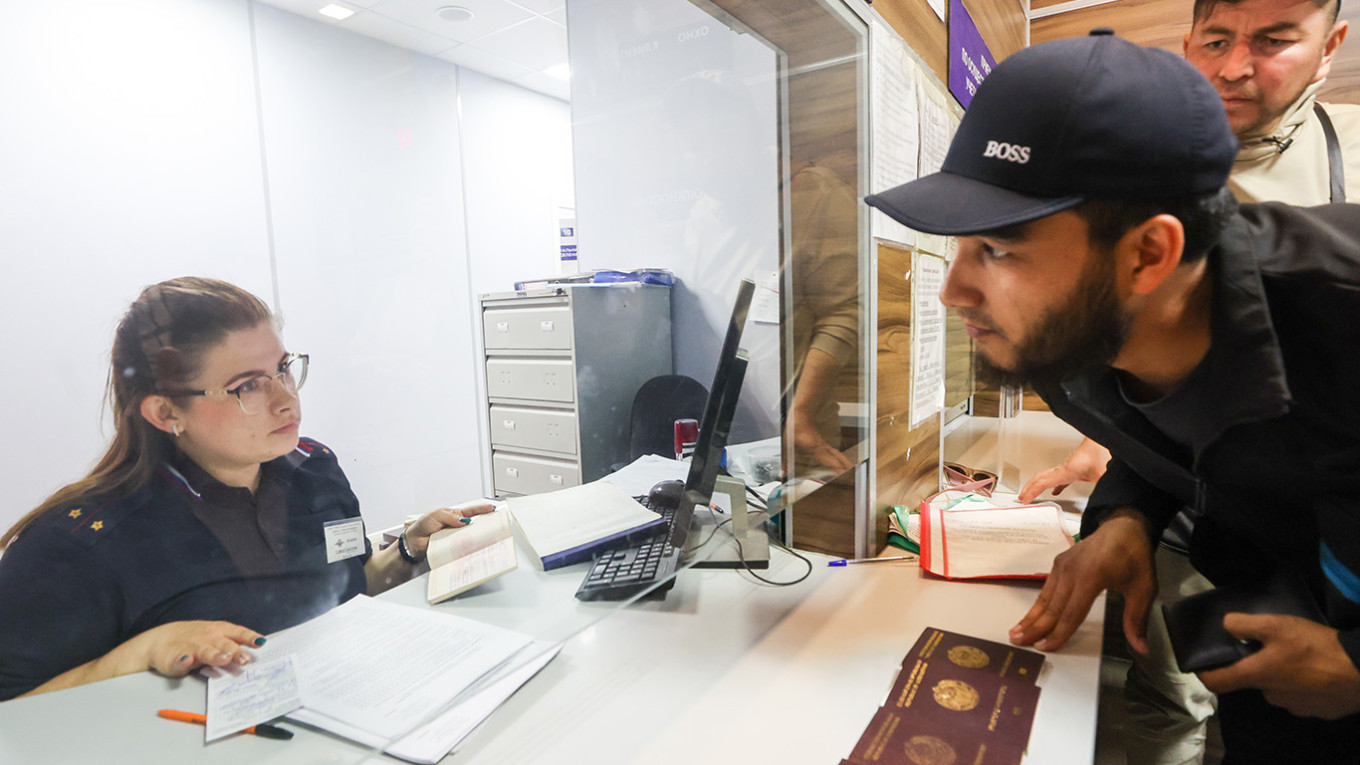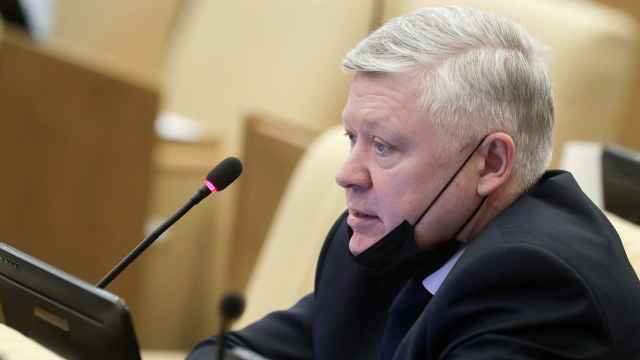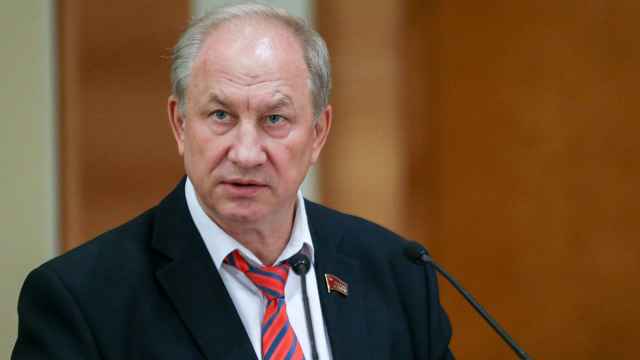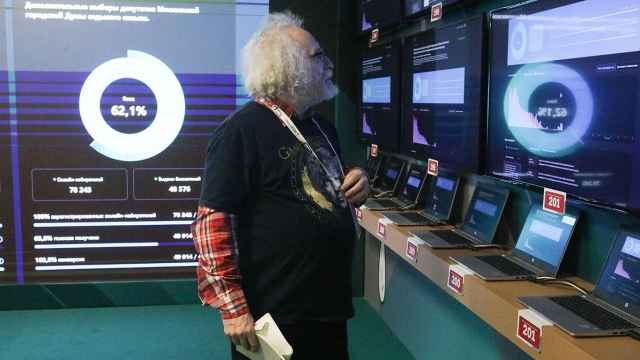The Russian state, having already invaded Ukraine, appears set on the destruction of its own country. Now, it appears to have found another way to seal Russia's fate. On Jun. 18, the State Duma passed the first reading of the draft law that will spark a migration crisis that will only pour fuel on the fires of corruption. Furthermore, its negative effects could be felt far beyond Russia’s borders.
The Russian Ministry of Internal Affairs plans to issue migrants with a document certifying their identity in place of their national passports – which will probably be confiscated. This “universal” document will contain all data on the migrant and their status in Russia, and all other information will be contained in a database with a key on a built-in chip, to which only the police will have access. Thus, the migrant will never know whether he or she is in Russia legally, and the police will have every opportunity to deceive any migrant about their status, without the possibility of being proved wrong.
It is already common for the police to systematically falsify reports on non-existent migration offenses. Already 80% of migrant detentions are illegal. When there is no longer a way to prove their legitimacy, what is to stop that number from rising to 100%?
Police in Russia only have the legal right to detain and check the documents of persons wanted for criminal offenses. However, according to this draft law, the police will be able to detain anyone, seize their documents, and prosecute them for unprovable and non-existent violations. A study showed that people who do not look Slavic are twenty times more likely to be stopped than people who do. This makes it clear that non-white people in Russia – even citizens – would be targeted under this law.
Currently, the average migrant is illegally detained by the police twice a month and ends up paying an average bribe of $150 just to be released. Annually, this amounts to $6.9 billion. I am confident that, if passed, this law would see the number of checks soar as the authorities are given a carte blanche for extortion.
The draft law allows for this document to be seized and migrants to be banned from Russia without so much as a court order. Moreover, migrants would never even be told they had been banned. Their universal identity card would simply be canceled. If a document check found their card was invalid the migrant would be deported without explanation. There is no way for a migrant to check their status to avoid this.
Any police officer will have the right to place migrants in a "controlled stay regime" even if they are only suspected of breaking the law. This will mean they have no right to leave the place of their registration without the permission of a district police officer, even to go to the store for groceries. Sick migrants who are in the hospital or at home on bed rest will also be subject to these restrictions.
A migrant entering Russia for a period exceeding 30 days in a year will be obliged to sign a "loyalty agreement" to respect the laws and "national traditions and customs of the peoples of Russia.” The pledge also says the migrant will "not abuse the right to appeal against: against the authorities. What this means in practice is that the migrant must obediently accept any arbitrariness of Russian civil servants without the right to appeal against them
Furthermore, employers will no longer be able to officially hire migrants. They will have to obtain permission to hire each migrant for each role placing vacancies with citizenship requirements in a special electronic register for approval by an undefined state commission. This also applies to labor visas for foreign students, holders of residence permits and citizens of the Eurasian Economic Union. Thus, it will be impossible to promptly hire necessary specialists, and transfer them to another position or another region. The labor market will be thrown into chaos.
When faced with these hoops to jump through, employers will hire migrants illegally, thus losing even the opportunity to pay taxes on their income. Shadow employment of migrants was widespread in Russia between 1999 to 2006, before the liberal migration reform. But the Russian economy has a much more severe labor shortage than back then, and the infrastructure of cashing out money has been severely destroyed.
If the bill is adopted, people employing migrants, including those with residence permits, EEU citizenship, or foreign students, will have to pay fixed amounts of income tax in advance before their workers have even earned any money. This makes it prohibitively complicated to hire migrants. Even if there are bona fide employers who have managed to officially employ migrants but failed to make these advance payments on time, the migrant worker will fall under the "regime of controlled stay" and after 15 days of delay will be automatically deported for 10 years.
Another equally criminal alternative is the creation of a network of fraudulent firms that will deduct migrants’ salaries to pay their income tax in advance. Thousands of such firms, under the protection of the Federal Migration Service and the Internal Affairs Ministry, now sell false registration at addresses where migrants do not live, and fictitious labor contracts, under which they extend their migration registration without working in these firms. With the adoption of this law, their fodder base will grow tenfold.
Even if there are bona fide employers who have managed to employ migrants, in case of any delay in advance payment (for example, in case of accidental blocking of the employer's bank account, accounting error with the payment code, lack of sufficient funds in the employer's account, etc.) the migrant worker would then be detained for 15 days and then automatically deported for 10 years.
Even if migrants have a residence permit, their right to work will no longer be automatic. They will have to obtain a separate year-long work permit with a validity of just one year. This permit will also be specific to their profession, so changes of job or workplace would require the migrant to reapply for a new document. This will in practice leave migrants unable to break away from exploitative workers, even if they are treated like slaves. Legal migrants will thus be in an even worse position than illegal migrants who will have no reason to comply with this restriction.
According to the draft law, migrants in Russia lose access to all social rights, benefits, and access to medical care and schooling for children. Migrants would lose protection from work-related injuries, rendering them powerless slaves at the mercy of the police and totally dependent on employers, including illegal employers.
The stipulation that has attracted the most attention is the 90/365 rule: a migrant who comes to Russia without a visa will be able to stay in Russia without a "universal identity card" for no more than 90 days per year. This rule is already in place for most labor migrants. However, transit road transportation through Russia by foreign drivers may be forced to stop completely. Furthermore, communities along the border with Kazakhstan who are used to moving between countries daily for work and shopping may find their lives complicated. It is not clear why this particular norm is being heavily publicized by the Ministry of Internal Affairs as the main innovation and a way to combat illegal migration. Perhaps they are trying to divert attention away from more important changes.
The consequences of this new law would be serious and wide-reaching. Legal migration to Russia will practically cease. Legal migrants will face far more obstacles than illegal migrants living below the radar. Thus, people who are ready to break the law will come to Russia, while law-abiding people will not. As a result, Russia will lose about 5 million pairs of working hands – mostly skilled workers who could find employment elsewhere – in the most stable sectors of the economy.
The law also places such a burden on employers that it will deter them from complying. It will instead be easier for them to hire migrants illegally, and bribe the authorities to look the other way.. Construction, agriculture, and transport are key sectors of the Russian economy which are especially reliant on migrant labor. Forcing them to hire migrants illegally will increase their costs, which will result in a sharp rise in the price of the products of these industries, colossal losses for the state budget and colossal corruption in the police and tax authorities.
Rampant corruption and entire large industries pushed into the shadow sector of the economy will provoke further growth of crime, tax evasion, and inflation. This will erode the economic and social well-being of Russians and cause further growth of social discontent.
Furthermore, this social unrest may not be confined to Russia. Migrants from Central Asia often send remittances from Russia to their families. With this avenue of support gone, poverty and instability could grow. These regimes will be forced to either pressure the Russian government, or urgently look for jobs for their migrants in countries "unfriendly to Russia", and again fulfill their demands to comply with sanctions. Thus, the foreign policy and foreign economic situation for Russia will also worsen
harp forced reorientation of the authorities of the countries of origin of migration to Russia to new directions will lead to aggravation of their relations with Russia, which realizes itself literally "in the ring of enemies", which with the general aggressive madness reigning now in the government of the Russian Federation, may provoke new attacks of the Russian Federation on the countries of Central Asia.
At the same time, this law could increase illegal migration beyond Russia’s borders as migrants turn their hopes to Europe and the United States, countries that are particularly bureaucratic and reluctant to issue labor visas. However, some migrants may find it preferable to be an illegal migrant in Germany or the U.S. than in Russia. At least there is less corruption and open fascism in those countries.
Thus, the adoption of this law will bring lawlessness and suffering to millions of people not only in Russia itself but migrants’ countries of origin. More broadly, it could increase illegal migration, and the xenophobia it sparks, further afield. The progress of this bill must be stopped to avoid such a disaster.
A Message from The Moscow Times:
Dear readers,
We are facing unprecedented challenges. Russia's Prosecutor General's Office has designated The Moscow Times as an "undesirable" organization, criminalizing our work and putting our staff at risk of prosecution. This follows our earlier unjust labeling as a "foreign agent."
These actions are direct attempts to silence independent journalism in Russia. The authorities claim our work "discredits the decisions of the Russian leadership." We see things differently: we strive to provide accurate, unbiased reporting on Russia.
We, the journalists of The Moscow Times, refuse to be silenced. But to continue our work, we need your help.
Your support, no matter how small, makes a world of difference. If you can, please support us monthly starting from just $2. It's quick to set up, and every contribution makes a significant impact.
By supporting The Moscow Times, you're defending open, independent journalism in the face of repression. Thank you for standing with us.
Remind me later.






